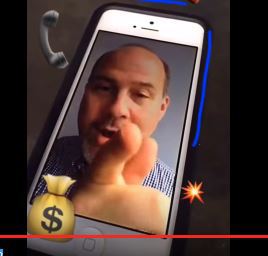Ringless voicemail: Florida breaks ground with new law.
The phone never rings. But somehow you have a voicemail. It’s a business selling something, even though you’re on the Do Not Call list. Is that legal?
Not in Florida as of July 1. This week Gov. Rick Scott signed SB 568, which expands the Do Not Call list to include direct-to-voicemail sales calls.
That puts the state at the forefront of blocking such messages, said William E. Raney, a Kansas City attorney whose firm, Copilevitz & Canter, advises clients on telemarketing laws.
“As far as I know, it’s unique,” Raney said. “Florida is the first state legislature I know of that has explicitly said that.”
Technology often gets out ahead of regulation in such matters. A petition by telemarketing concerns to ask the Federal Communications Commission to rule such messages are not subject to Do Not Call rules — because they never ring — was withdrawn last year without a ruling under a cloud of adverse publicity.
But it’s already out there. One consumer filed a lawsuit against a Naples, Florida car dealer for using such tactics. The case has since been settled without a court ruling, a Florida Senate staff analysis noted.
Three states not including Florida raised a stink about the FCC petition made by a telemarketing concern called All About The Message, The Palm Beach Post reported last year.
“Granting companies a free pass to push ringless voice messages to consumers’ phones just adds more robocalls and causes significant financial harm to those who are charged for checking their messages,” said Massachusetts Attorney General Maura Healey.
It’s a move that can defeat many call-blocking apps, states argued. Some phone plans have limits or charge fees for storing and checking messages. Unbridled, it could leave consumers with virtually no control over technology that can pump out such calls literally by the billions.
Consider: An estimated 2.8 billion robocalls, or automated calls of all kinds, were made to U.S. consumers in the month of December alone. In 2017, the FCC received 155,282 consumer complaints about robocalls, including federal Do Not Call List violations, call spoofing, and solicitations made by an automated recording, the staff of the Florida Senate’s rules committee noted.
Attempts to seek comment from an industry group, the Professional Association for Customer Engagement, were not immediately successful. But some in the business make the case such messages are less disruptive than regular calls.
“The act of depositing a voice mail on a voice mail service without dialing a consumers’ cellular telephone line does not result in the kind of disruptions to a consumer’s life — dead air calls, calls interrupting consumers at inconvenient times or delivery charges to consumers,” All About The Message argued in its FCC petition.
Florida’s law does not mean you will never receive a ringless voicemail if you are on the Do Not Call list, however. First, some scofflaw telemarketers ignore Do Not Call for all sorts of messages. They are often based in other countries or using fake or “spoofed” numbers, and they know it’s hard to police them in an age of global calling by way of the Internet. At best they are using questionable methods to steer leads to legitimate businesses. At worst they’re outright scams trying to steal money or personal information.
But there’s also this: the law allows certain calls by schools, non-profit and charitable groups, or people taking surveys. Florida law says the Do Not Call restrictions do not apply to “a charitable or political organization that is seeking donations,” according to the Senate staff analysis.
Speaking of politics, the Republican National Committee filed a brief with the FCC arguing ringless voicemails, even by commercial advertisers, should be OK. Why? With no ring, it “does not constitute a call” that is subject to the Telephone Consumer Protection Act, the RNC’s brief said. The RNC further expressed concerns an adverse ruling could inhibit free political speech protected by the First Amendment.
While the dust settles on what is legal for political direct-voicemailers, there’s also the practical question of whether it’s a smart marketing play at this point. Publicity over the FCC petition — which set the stage for Florida’s law — suggests not everyone views ringless voicemails as a delightful surprise to brighten their day.
To get on the Do Not Call list, go here:






